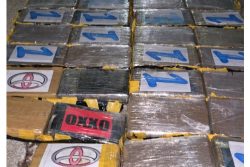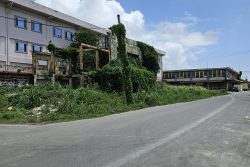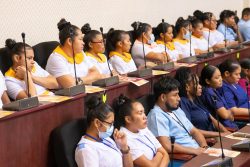Speaking in Rio de Janeiro earlier this week, Pope Francis warned that the “liberalization of drug use” would not help to curb the “spread and influence of drug addiction” in Latin America. Curiously, a few days later the new leader of the Canadian liberal party, Justin Trudeau, took almost the opposite tack and said he now believed in legalization of marijuana rather than decriminalization, adding that under current laws it was often “more difficult for young people to get their hands on cigarettes than it is to get their hands on weed.” After referring to the failures of America’s war on drugs, Trudeau said the time had come to move beyond “ideology and fear” and to adopt policies based on “evidence and best practices.” He also noted while marijuana “is not a health food supplement” studies had shown that it is “not worse for you than cigarettes or alcohol.”
The need to develop a sensible approach to drug use has never been greater. Setting aside the unquantifiable personal costs of addiction, the corruption and violence spawned by the narcotrafficking cartels that have overwhelmed several Latin American states suggest that the “war on drugs” may no longer be de-escalated merely through policy changes. The lack of celebration following the recent capture of the prominent Zeta leader Miguel Angel Trevino is evidence that the violent transnational networks that move guns and drugs throughout the region are not easily dismantled.
Trevino Morales’ network is a case in point. Formed by a group of defectors from the Mexican army’s special forces, the commandos who founded the Zetas were specially trained in drug enforcement. In the late ’90s, after working as death squads for the Gulf cartel, their new operation was characterized from the start by a taste for spectacular cruelty. Trevino Morales himself was notorious for devising new ways to torture, disembowel and dismember his victims. (He was reputed to have disposed of several rivals in vats of acid.)
But his removal from the command structure of the Zetas is not expected to hamper their multi-billion dollar human- and narco-trafficking operations, nor to significantly reduce the violence in a drug war that has claimed some 70,000 Mexican lives since 2007.
Recent truces negotiated with drug gangs in El Salvador and Honduras have shown that there are options beyond the traditional hardline responses to drug-related violence. In both countries there is an evident note of exhaustion to the public statements made by gang members, an important clue as to what lead them into the “peace process” organized by the Catholic Church and supported by the OAS. Two days ago the Washington Post quoted a Honduran gang member saying: “We take responsibility for the mistakes we’ve made.” He justified the truce on the basis that “Violence just generates more violence.” The gangs have asked the government in both countries to help them with rehabilitation and jobs ‒ a sign that even in one of the world’s most violent environments, small and practical measures may contribute to a peaceful resolution to decades of drug violence.
Elsewhere there are signs that more enlightened drugs policies have already borne fruit. An Economist leader on the widespread fall in crime noted that tolerant regulation of drugs in the Netherlands and Switzerland has driven “street dealers and hustlers” out of city centres. Furthermore, the greying of Europe’s population has meant that “addicts there are now elderly men, often alcoholics, living in state hostels” and not idle youths, who are far more likely to commit violent crimes.
The Economist also notes that the American prison population is “full of old men” and states like California, where mandatory sentencing policies ‒ similar to those in Guyana – have been pioneered, spends more than 20 per cent of its prison budget on prisoners who are over 50 years old. The Economist points out that it costs the California taxpayer more to keep these men in prison than it would to send them to Stanford University.
As a recent editorial in this paper observed, there is still no systematic approach ‒ despite an abundance of strategies ‒ to dealing with drug use in this country. Public discussions of what to do about drug use are too often informed by “ideology and fear” rather than a willingness to consider “evidence and best practices.”
And far too little has been done to tackle the problem with practical, preventive measures such as recreational facilities in rural communities, or through better subsidies to the few rehabilitation programmes that do exist.
Whether it is yet socially or politically practical to decriminalize the use of marijuana, let alone harder drugs, in this country remains to be seen, but the success of other countries’ approaches to drug use, and to the terrible violence associated with the lucrative trade in illegal narcotics, suggest that much more could be done to bring our attitudes and policies into the twenty-first century.








